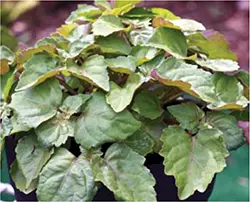
Origins of Patchouli
Patchouli essential oil is derived from the leaves of the Pogostemon cablin shrub, belonging to the mint family. This plant, native to Southeast Asia, is cultivated extensively across India, Malaysia, China, Indonesia, the Philippines, and South America. The oil is notable for its distinctive musky and earthy scent.
Historical Background and Lore
In the eighteenth and nineteenth centuries, Indian silk traders used patchouli to protect their fabrics from moths, inadvertently associating the cloth with its rich scent. During the 1960s and 1970s, patchouli oil and incense gained enormous popularity in the United States and Europe, particularly among the hippie movement.
Therapeutic Uses of Patchouli Essential Oil
Health Benefits
Patchouli oil is highly effective for various skin conditions. It hydrates dry, chapped skin and treats acne and eczema. It also benefits hair and scalp health, reducing oiliness and dandruff. When inhaled, it soothes nerves, alleviates stress, and combats insomnia, and is recognized for its aphrodisiac properties.
Personal and Spiritual Growth
Patchouli oil promotes balance between mind, body, and spirit. It assists in overcoming obstacles and achieving goals. Used in meditation, it helps quiet the mind and ground spiritual awareness in the body. Adding patchouli to bathwater relieves mental exhaustion and emotional stress. In massage therapy, it enhances sexual energy.
